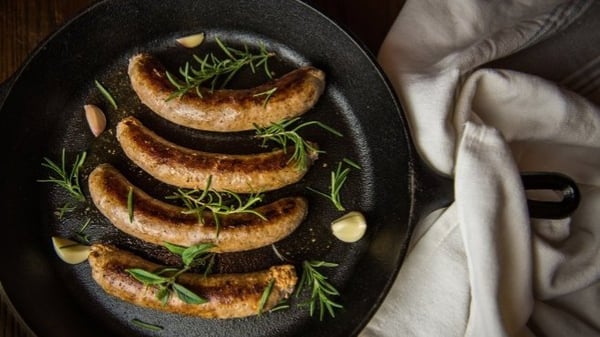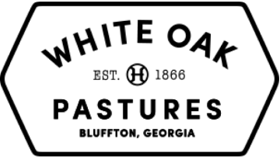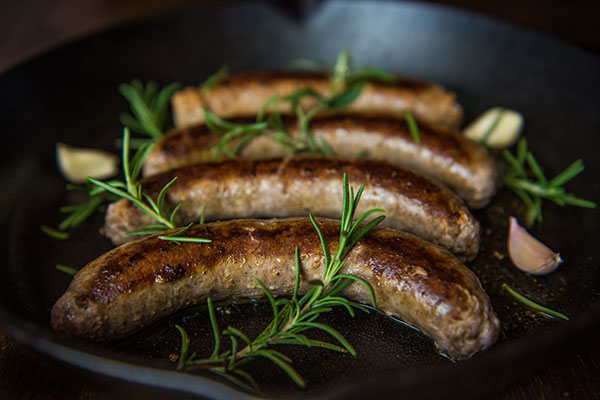
We’re proud of the sausage we make on our farm. There is a noticeable difference between White Oak Pastures organic, small-batch, pasture-raised sausage, and common commodity sausage that you would find in the average grocery store aisle.
Brian Sapp, our Director of Operations, has responded to customers who inquire about our sausage, how we make it, and why. Here’s an excerpt from one of Brian’s recent replies to a customer.
Commodity sausage vs. pasture-raised sausage
“Thank you again for the review on the sausage. I would like to point out a couple of things that make us extremely different from the ‘Jimmy Deans’ of the world.
Commodity pork sausage is typically produced from cull sows that are slaughtered and immediately deboned, in a process known as ‘hot-boning’. With commodity sausage, that hot meat goes straight into sausage production prior to being chilled or frozen.
If you ever have the chance to visit one of these facilities, the smell of hot-boned pork, hot ground pork, and mixed sausage is a life-changing experience. Some consumers cannot get past this flavor that comes from hot-boned pork, calling it similar to boar taint.
A very large percentage of sausage manufacturers add binding or extending ingredients to the meat to increase shelf life of their sausages. Facilities that are producing hundreds of thousands of pounds of sausage per day strive to find ways for their products to retain moisture and water that is added to the blend. The main reason for water retention is to add weight to the final product. Water is much cheaper than protein, so this ultimately increases their bottom line.
Similarly, fat is cheap and typically pretty abundant in high-volume processors. Commodity producers strive to add as much fat as regulatory-ly possible to drive down their meat prices.”
Why eat pasture-raised sausage?
According to Brian Sapp, “White Oak Pastures’ pasture-raised sausages are made of only high quality protein, seasonings & all natural pork casing. Our raw materials come from some really quality cuts such as our pasture-raised pork picnic shoulders, butts and hams. We slaughter and chill all products prior to deboning or sausage production.
We strive to create a great eating experience. I think a sausage that is a bit leaner, well seasoned, and made from high-quality cuts out-performs a product that is hitting the limits on fat content. Sure this adds some cost, but to me, it is a much better experience and adds to the "bite" experience. Leaner sausage in a good pork casing that has been properly cleaned and prepared creates a "bite snap" that is far superior than a fat sausage in a poorly prepared casing.
We do not add any type of extenders or binders to our products. We may not get the same fresh shelf life of other products, but it is a very pure, wholesome sausage. Our products are simply high-quality protein with seasoning added. Selling our sausage frozen is about the only option we have because of its high-quality contents. The trade-off is that our sausage is certainly a more favorable eating experience.”
Organic, pasture-raised sausage
White Oak Pastures has a range of sausages from six different species available on our online store. Our pasture-raised sausages are made of only high quality protein, seasonings & all natural pork casing. We offer both loose ground sausage meat and sausage in casings. At White Oak Pastures, we never add any binders or extenders to our lean sausages.
Slight adjustments in the cooking process can help ensure you get a delicious, moist, satisfying sausage, whether you're cooking on the grill or in your kitchen. We put together directions for cooking pastured sausages on the grill, in the pan, or in the oven, here.



